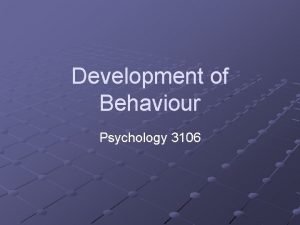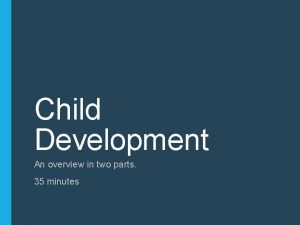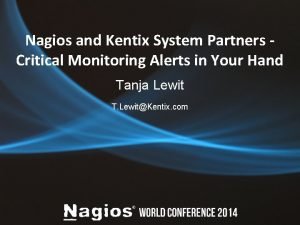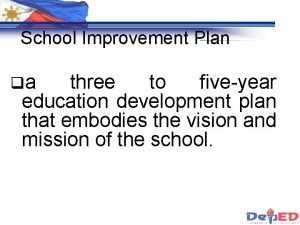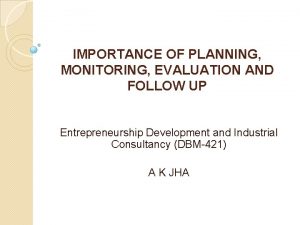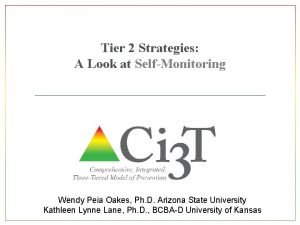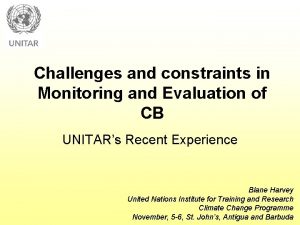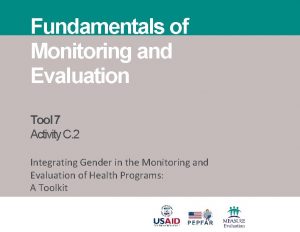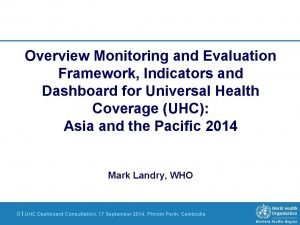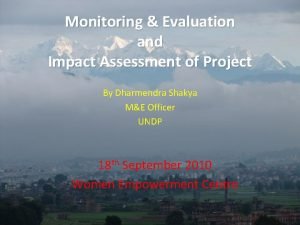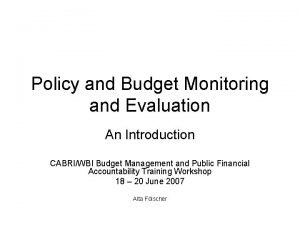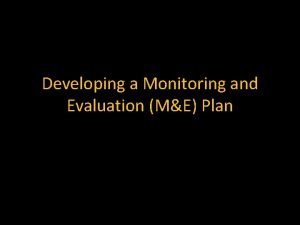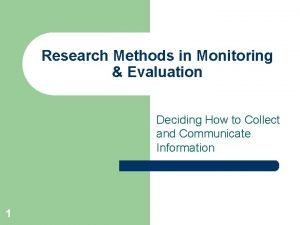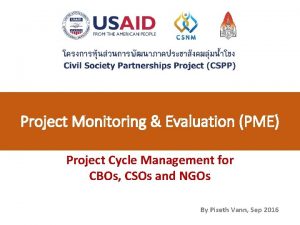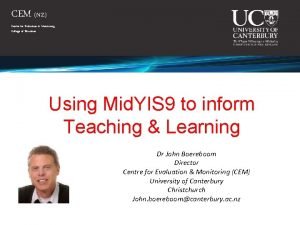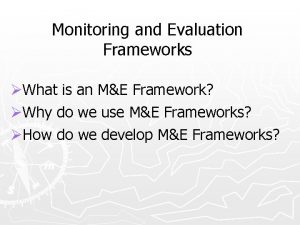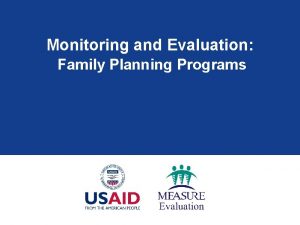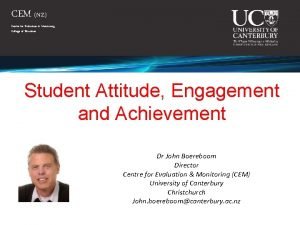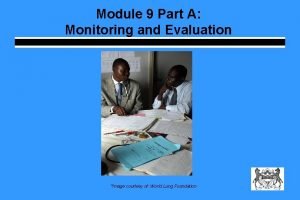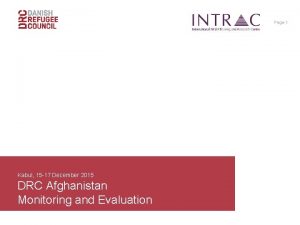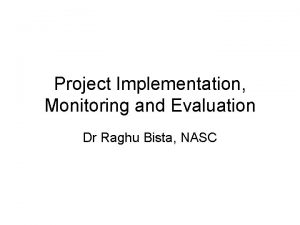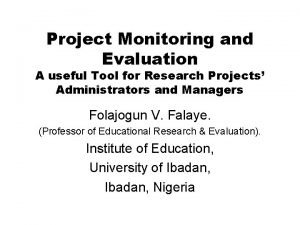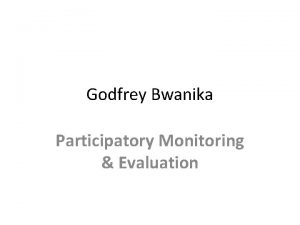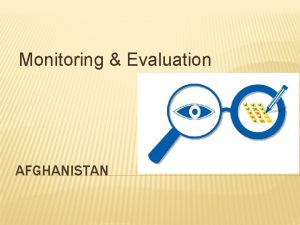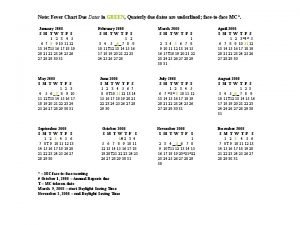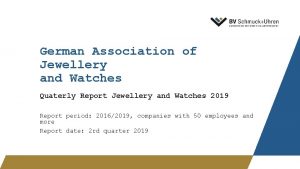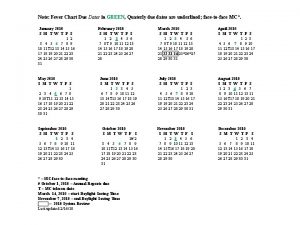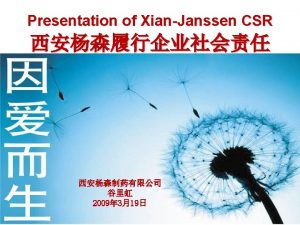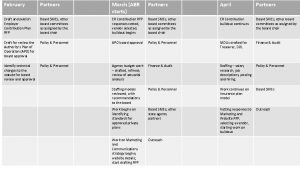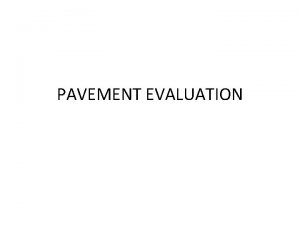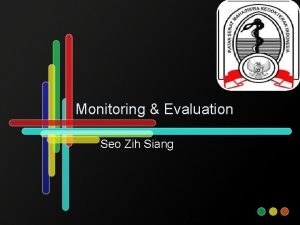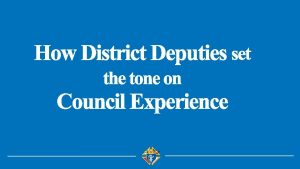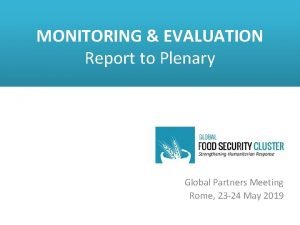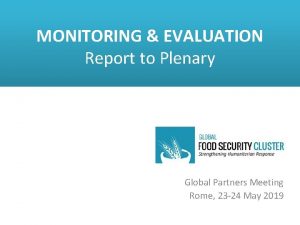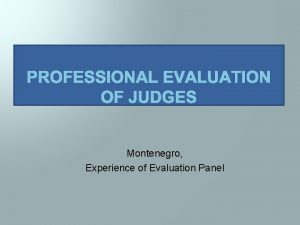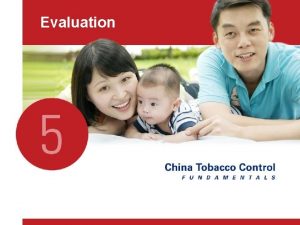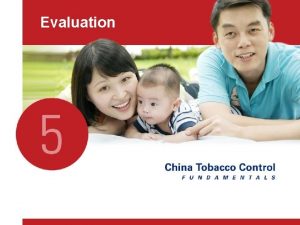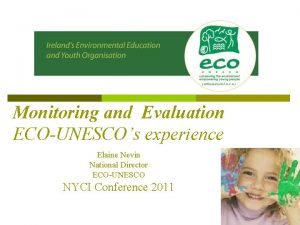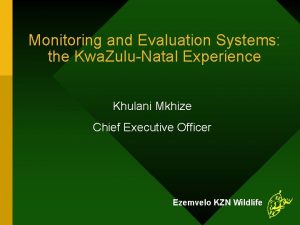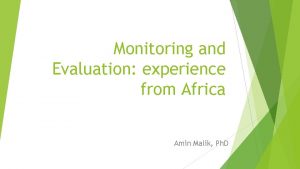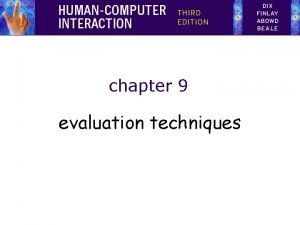Monitoring Evaluation experience Partners Quaterly Monitoring Partners quaterly
























- Slides: 24



Monitoring & Evaluation experience


Partner’s Quaterly Monitoring

Partners quaterly monitoring: Example from Latvia



Outcomes gathering: coordination calls, monthly reports, learning circles Why to make learning circles? To learn together! ; -) The purpose is to build and extend our knowledge about development and environmental perspective of food systems and global education methods, exchange ideas and opinions in order to build our capacity to guide teachers during the project. How does it work? We come together in a group of max 7 people to exchange about inspiring project related content or methodology during a skype call of an hour. Everytime one different person facilitates the discussion. We discuss what surprised us, what were the key interesting facts about the issue, how it relates to what we are working on, etc. For whom is it? This targets in particular the people who will be the reference people for the project content in each countries (and who play a role in the trainings for teachers). It can be the country coordinators, or colleagues, or members of working groups. At least one person per country should take part, but more are welcome. How often does it happen? Once in two month. Two dates are proposed for the skype call. People just sign up for one of them.

Result Orienting Monitoring experience (ROM)




Mid-term & Final evaluation

Objectives of the mid-term evaluation: • Identification of project components that play role of factors enabling and supporting sustainability of impact and meaning of the project programme even after the end of the Eat Responsibly project, and qualitative analysis of contexts in which the factors can be efficient • Identification of factors (good practices) that have supported project successes in the project countries, with special focus on entering of global dimension into network of environmentally oriented schools – • Focus on stories of change: identification and evaluation of changes that the project has brought to the project countries in terms of • Mind-set of the target groups representatives • Skills and everyday behaviour of the target groups representatives • Concrete structural change relevant to responsible food consumption • Case studies in 2 selected countries evaluating in depth changes that the project has brought with special focus on drives of these changes and on their impact on public engagement of project target groups

Final evaluation - objectives: 1) Summarise experience of individual actors (coordinators & teachers) 2) Identify factors enabling and supporting sustainability 3) Identification of factors (good practices) that have supported project successes 4) Implementation of global dimension into network of environmentally oriented schools 5) Identification and evaluation of changes that project has brought into everyday life of its participants Methods: a) Menu for Change International Forum: quantitative evaluation b) Coordinators: on-line in-depth interviews c) All teachers: brief quantitative questionnaire d) Involved teachers in-depth: on-line in-depth interviews with selected teachers


You cannot get through a single day without having an impact on the world around you. What you do makes a difference, and you have to decide what kind of difference you want to make. Jane Goodall

Thank you for your attention! Tereza Cajkova (cajkova@glopolis. org)

550 schools 2107 teachers trained 14840 teachers involved

757 (out of) school actions

111 317 pupils and 67 427 students were active organisers of project events

91 649 parents involved 2202 parents active part of eco-teams

42 095 households = participating in the food review 91 649 parents = participating on the events
 Imprint definition psychology
Imprint definition psychology Early experience vs later experience
Early experience vs later experience Indirect experience
Indirect experience Nagios partners
Nagios partners Swot analysis for school improvement plan
Swot analysis for school improvement plan Importance of planning, monitoring and evaluation
Importance of planning, monitoring and evaluation Monitoring and evaluation tool sample deped
Monitoring and evaluation tool sample deped Monitoring and evaluation challenges
Monitoring and evaluation challenges Basics of monitoring and evaluation
Basics of monitoring and evaluation Monitoring and evaluation dashboard
Monitoring and evaluation dashboard What is monitoring
What is monitoring Budget monitoring and evaluation
Budget monitoring and evaluation Monitoring and evaluation plan template
Monitoring and evaluation plan template Research methods in monitoring and evaluation
Research methods in monitoring and evaluation Pme management definition
Pme management definition Centre for evaluation and monitoring
Centre for evaluation and monitoring Monitoring and evaluation framework
Monitoring and evaluation framework Monitoring and evaluation of family planning programs
Monitoring and evaluation of family planning programs Centre for evaluation and monitoring
Centre for evaluation and monitoring Monitoring and evaluation image
Monitoring and evaluation image Principles of monitoring and evaluation
Principles of monitoring and evaluation Example of monitoring and evaluation in project proposal
Example of monitoring and evaluation in project proposal Comparison between monitoring and evaluation
Comparison between monitoring and evaluation Difference between supervision monitoring and evaluation
Difference between supervision monitoring and evaluation School monitoring, evaluation and plan adjustment sample
School monitoring, evaluation and plan adjustment sample
